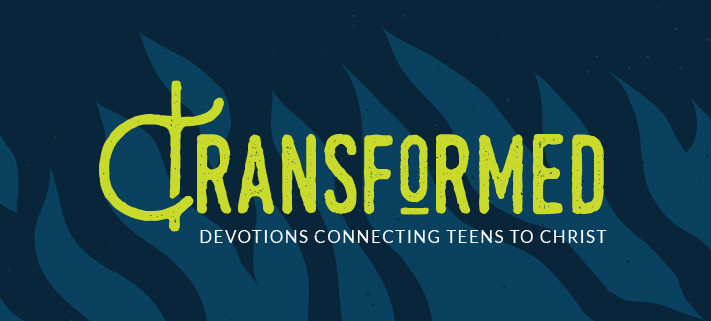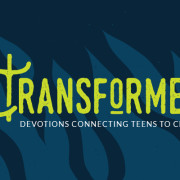Transformed – teen devotion – August 21, 2022
When our spiritual narcissism entitled us only to be cast out from God’s presence forever, Jesus would be cast out so we would be brought in.
Then Jesus went through the towns and villages, teaching as he made his way to Jerusalem. Someone asked him, “Lord, are only a few people going to be saved?”
He said to them, “Make every effort to enter through the narrow door, because many, I tell you, will try to enter and will not be able to. Once the owner of the house gets up and closes the door, you will stand outside knocking and pleading, ‘Sir, open the door for us.’
“But he will answer, ‘I don’t know you or where you come from.’
“Then you will say, ‘We ate and drank with you, and you taught in our streets.’
“But he will reply, ‘I don’t know you or where you come from. Away from me, all you evildoers!’
“There will be weeping there, and gnashing of teeth, when you see Abraham, Isaac and Jacob and all the prophets in the kingdom of God, but you yourselves thrown out. People will come from east and west and north and south, and will take their places at the feast in the kingdom of God. Indeed there are those who are last who will be first, and first who will be last.”
Luke 13:22-30
The First Will Be Last; The Last Will Be First
Steve is the owner of an incredibly popular Italian restaurant—a restaurant so popular you need to make reservations in July to get a table in December. On the days when his restaurant is incredibly busy, you won’t find Steve hiding in the back office; you’ll find him busing tables, mopping floors, and filling in wherever help is needed. One night—when Steve was greeting customers at the door—a group of six women walked in and demanded to be seated. Steve asked for the name on their reservation. The leader of this group says, “Oh, we didn’t make a reservation—but it’s okay. The owner is a personal friend of mine—and he said he always has one or two tables open for special guests like me.” She clearly didn’t know the owner. And Steve didn’t know her, either. What he did know was that this woman was trying to get into his restaurant on her terms—not his. She was trying to illegitimately bypass her need for a reservation and get in however she wanted. She, by virtue of who she was, felt entitled to a seat.
We see that same attitude of entitlement in our story today. Some within Jesus’ audience felt entitled to God’s love because of how good a person they thought they were; others felt entitled to God’s heaven by virtue of their Jewish ancestry. But if it’s by virtue of who I am that gets me right with God, that inherently paves a broad highway to heaven. And so, with one sentence, Jesus demolishes that idea entirely. “Make every effort to enter through the narrow door.” That narrow door is Jesus.
But entitlement seeks to engineer other doors into heaven. Entitlement points to our track record and says “See God? I’m such a good person, I deserve to go to heaven!” Entitlement points to our background or upbringing, and says, “Because I’m this kind of person, I deserve to be loved by God.” The Pharisees listening to Jesus certainly felt that way. They prided themselves on their Jewish lineage and they vigorous devotion to their man-made traditions. They didn’t feel they needed the kind of Savior Jesus came to be. So, you can imagine how offended they got when Jesus said they would stand outside the heavenly banquet pleading to be let in—while the outcasts of society—the foreigners, tax collectors, and prostitutes who clung to Christ in faith—were not only entering the kingdom of God ahead of the Pharisees but were given a seat “at the feast in the kingdom of God.”
How this world determines who’s first and last isn’t how it’s done in the kingdom of God. God’s economy of grace defies our economies of entitlement—and the world isn’t the only one scandalized by the upside-down nature of God’s kingdom: we are, too. “Why wouldn’t I be first?” we say. “I try to go to church and read my Bible regularly. I volunteer. I work hard. I try to be a good person. Shouldn’t that count for something? I mean, sure, sin is bad. But there are people around me who are much worse. Why wouldn’t God love me for who I am?” But if you and I try to appeal to entitlement and point to who we are as our confidence to stand before God, then God would be entitled to respond just like Steve did to that woman trying to get in his restaurant on her terms. “I don’t know you.”
But when our sins of spiritual narcissism entitled us only cast from God’s presence forever, Jesus stepped in. More accurately, Jesus would be cast out so we would be brought in. Jesus was headed to Jerusalem to endure hell on a cross. Not because he was ‘entitled’ to that kind of death—but because we were. His love would move him to be rejected by God so we would be accepted. Jesus endured what we were entitled to in order to win us what we weren’t. Because of Christ and Christ alone, you and I are forgiven before God and restored to him; we, in Christ, are made members of God’s family and have heaven as our home. Jesus would become last to put us first.
We can’t engineer other doorways into heaven. But we don’t have to. The only door is already wide open for the world! Through faith in Jesus alone—clothed with his righteousness, we will stand in joy beside him at the heavenly banquet! Rest assured that you have a seat at God’s table—because his blood has bought your seat. Your reservation is under the name of ‘Jesus’.
Prayer: Dear Jesus, thank you for becoming last to put us first. Thank you for becoming a servant to save us. Thank you for winning us a spot in your heaven and a seat at your table. In your name we pray. Amen.



